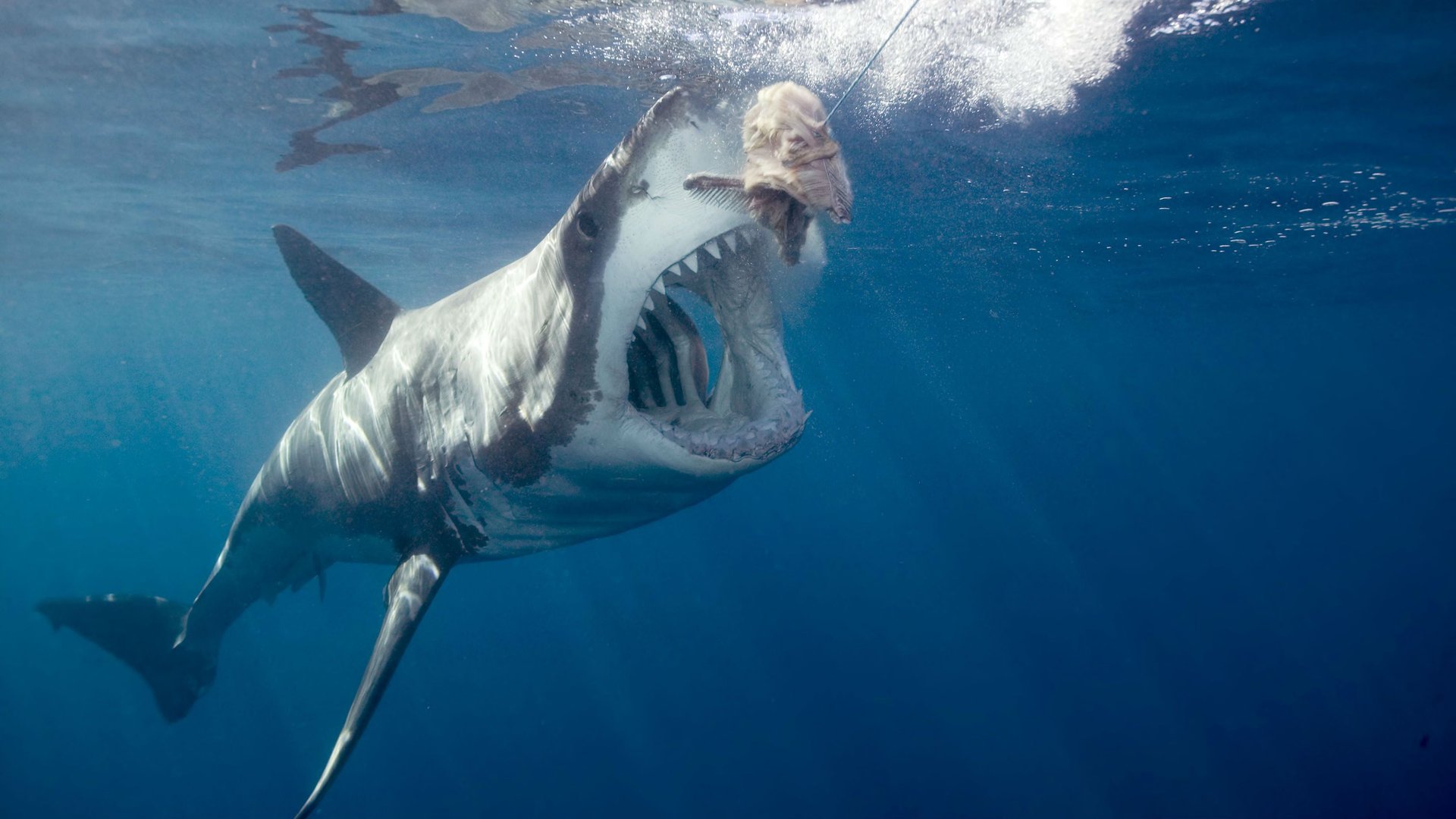No more Megalodon: Discovery Channel promises a more scientific “Shark Week” this year
The Shark Week behemoth is back. On July 5, Discovery Channel’s week-long ode to the ocean predator returned for its 28th season, promising more hours of programming than ever. Last year, more than 42 million people watched Shark Week, making Discovery the highest-rated cable channel in all of television.


The Shark Week behemoth is back. On July 5, Discovery Channel’s week-long ode to the ocean predator returned for its 28th season, promising more hours of programming than ever. Last year, more than 42 million people watched Shark Week, making Discovery the highest-rated cable channel in all of television.
The ratings bonanza came at a cost, though. In recent years, Shark Week has ventured deep into the waters of pseudoscience. The manipulative 2013 “documentary” Megalodon: The Monster Shark Lives, strung viewers along as it searched for a mythical shark that went extinct millions of years ago. That was then followed up in 2014 with Megalodon: The New Evidence, in which no actual evidence for its current existence—new or old—was provided.
But this year, Discovery seems to be putting a higher price on its credibility. Howard Swartz, head of development at Discovery Channel, tells Quartz that Shark Week will be focused more on science and research this time around. “We’ve certainly experimented with different types of storytelling over the last several years,” he says. “[New Discovery president] Rich Ross has come in and he does want to make it more science and research focused, so we’re doubling down on that direction.”
Of course, it’s not just Shark Week that has accounted for Discovery’s unfortunate devolution. Last year, Discovery aired a much-hyped, two-hour special about a man being eaten alive by an anaconda. (Unfortunately for viewers, no such consumption took place.) But Shark Week is Discovery’s crown jewel, and perhaps its best bet for lifting the channel out of the indistinguishable swamp of reality television that is cable TV in the United States.
To be sure, Discovery Channel has a really tough job. Striking the right balance between entertainment and education isn’t easy. When you devolve into ridiculous cryptozoology, people will watch, but they surely won’t be learning anything, and others will call you out hard for your lunacy. (Shortly after the man-eating snake debacle, Ross promised that the network was done with fake documentaries.)
At the same time, you can’t just show hours and hours of sharks swimming in the ocean, with no dramatic tension or heightened stakes for the viewer. As cool as sharks are, that kind of footage is unlikely to captivate a broad base of viewers—and then you’ve got bigger problems than a few scientists on the internet complaining about the Megalodon.
“We always want to be entertaining, we’ll never abandon the desire to entertain people,” Swartz said.
But luckily for Shark Week watchers, a cursory look at this year’s lineup reveals a slate of programming mostly devoted to scientific fact, devoid of anything remotely like Megalodon. Here’s a sampling of what’s on the schedule:
Shark Trek
Shark expert Greg Skomal and a team of engineers from the Woods Hole Oceanographic Institution embark on a mission to find out why great white sightings in Florida are on the rise. It’s the biggest study ever of Atlantic great whites.
Now we’re talking. This is especially timely, given the recent rise in shark attacks in North and South Carolina this summer.
Monster Mako
A team of marine biologists set out to clock the top speed of the fastest shark in the ocean – the mako. Meanwhile, a second team aims to prove that makos are ambush predators that breach to kill their prey, just like great whites.
More good stuff—an interesting experiment that can actually be conducted out in the field with real living sharks, not fake extinct ones.
Return of the Great White Serial Killer
Since 2008, every two years, in October, shark attacks strike Surf Beach, California. Now as October 2014 closes in, questions remain: will the attacks happen again? Is it the same shark? And, can DNA identify the great white shark responsible?
Ehh, this one is a little iffy. The notion that there is a “serial killer” shark, or that the same exact shark is responsible for all of these attacks that span several years, is slightly wonky.
Alien Sharks: Close Encounters
Deep below the ocean’s surface live some of the strangest marine animals on earth. Now, three expeditions are exploring those depths for sharks that glow in the dark. They are hoping for a close encounter in the strange domain of alien sharks.
The name of this program might scream “cryptozoology,” but these glow-in-the-dark sharks actually do exist.
Verdict: Discovery Channel is making an honest effort to improve the educational value of Shark Week and to rid itself of the pseudoscientific schlock that severely damaged its dignity. Now we’ll have to wait and see if this affects the ratings.